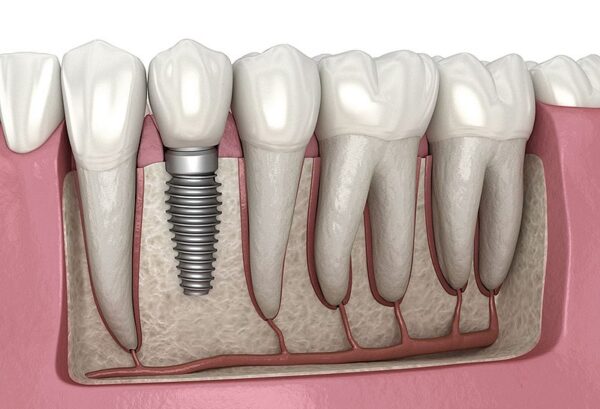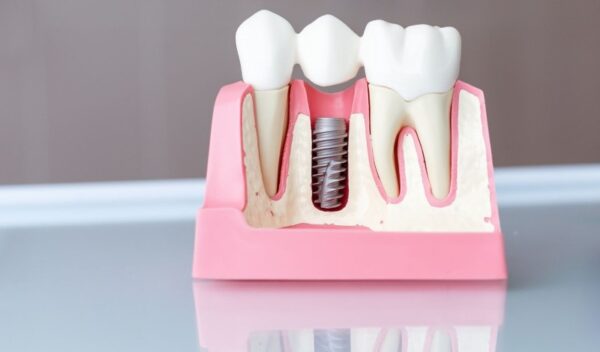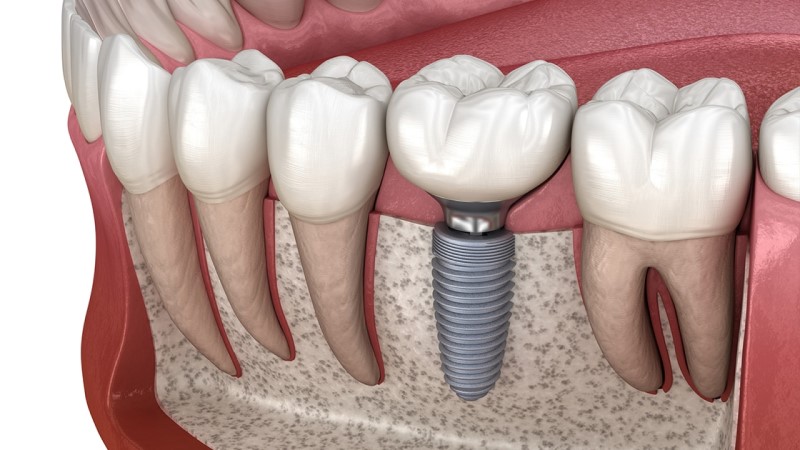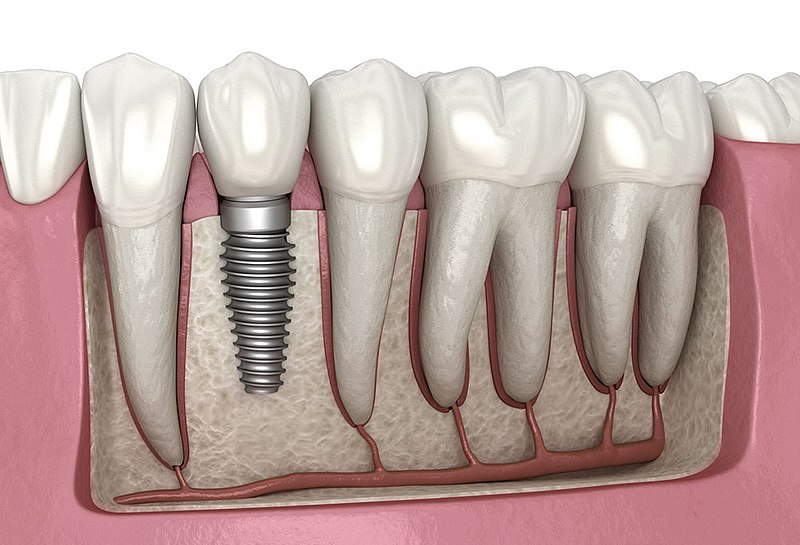Dental implant procedures have emerged as a remarkably safe solution for replacing missing teeth. With advanced techniques and materials, the process ensures minimal invasiveness and reduced risk of complications. Rigorous assessment, precise implant placement, and thorough post-operative care contribute to the procedure’s safety. Modern dental implantology not only restores smiles but also prioritizes patient well-being, making it a reliable choice for enhancing both aesthetics and oral health.
The details about dental implants
Dental implants are sophisticated restorative options designed to replace missing teeth with a strong and durable alternative. The procedure involves the surgical placement of a titanium post into the jawbone, which then fuses with the bone through a process called osseointegration. This creates a stable foundation for attaching custom-made prosthetic teeth, such as crowns, bridges, or dentures.
Safety is a paramount concern in dental implant procedures. Thorough pre-operative evaluations, including dental and medical history assessments and imaging techniques like X-rays, ensure that patients are suitable candidates for the surgery. Skilled oral surgeons or implantologists perform the surgery, often under local anesthesia, minimizing discomfort. Advanced sterilization techniques and aseptic protocols further reduce the risk of infection.
Following surgery, patients typically experience a short recovery period. Pain and discomfort are usually managed with over-the-counter pain relievers, and post-operative instructions are provided to ensure proper healing. Regular follow-ups allow dental professionals to monitor the implant’s integration progress and address any concerns promptly.
Dental implant procedures offer numerous benefits, including improved chewing efficiency, speech clarity, and facial aesthetics. They also prevent bone loss in the jaw, which commonly occurs when teeth are missing. While no medical procedure is entirely risk-free, the safety of dental implant procedures has been well-established through years of successful outcomes and advancements in dental technology.

Who can use dental implants?
Dental implants are a versatile solution for individuals who have lost one or more teeth and are seeking a long-lasting, stable replacement option. However, not everyone is automatically eligible for dental implant treatment. The suitability for dental implants depends on various factors, including:
- Oral Health: A healthy oral environment is crucial for successful dental implant placement. Patients should have healthy gums, sufficient bone density in the jaw to support the implant, and overall good oral hygiene.
- Bone Density: Adequate bone density in the jaw is necessary to provide a stable foundation for the implant. If bone loss has occurred due to prolonged tooth loss or other reasons, bone grafting procedures may be required to augment the bone before implant placement.
- Medical History: Certain medical conditions, such as uncontrolled diabetes, autoimmune disorders, and some heart conditions, might affect the body’s ability to heal after surgery. A thorough medical evaluation is necessary to determine if a patient is suitable for dental implant surgery.
- Age: Dental implants can be considered for individuals of varying ages, but bone growth and development in young individuals need to be considered to ensure proper implant placement.
- Commitment to Oral Care: Patients need to commit to maintaining excellent oral hygiene and regular dental check-ups after receiving dental implants. Proper care is crucial to prevent complications and ensure the longevity of the implants.
- Non-Smoking Status: Smoking can negatively impact the healing process and increase the risk of implant failure. Some dental professionals may recommend quitting smoking before undergoing implant surgery.
- Patient Expectations: Realistic expectations about the procedure’s outcomes and a willingness to follow post-operative instructions are important.
A comprehensive consultation with a qualified implant dentist or oral surgeon is necessary to determine if a person is a suitable candidate for dental implants. They will conduct a thorough assessment of the individual’s oral and medical history, perform necessary imaging, and provide personalized recommendations based on the individual’s unique circumstances.

>>See more: How long do dental implants last?
Is the dental implants procedure safe?
“Are dental implants safe?” is a common concern, but rest assured that the dental implant procedure is generally considered safe. Thanks to advances in dental technology, materials, and techniques, the safety and success rates of dental implant surgeries have significantly improved. Skilled oral surgeons and implantologists perform the procedures under sterile conditions, minimizing the risk of complications. Rigorous pre-operative assessments ensure that only suitable candidates undergo the procedure, while proper post-operative care promotes healing.
However, like any medical procedure, there are potential risks and considerations. Infection, implant failure, nerve or tissue damage, and rare complications are possibilities. Patients with certain medical conditions may have higher risks, and individual factors can influence the outcome. It’s essential to have a thorough discussion with your dental professional about your specific situation to make an informed decision about the procedure.

Safety considerations in dental implant procedures
Safety is a paramount concern in dental implant procedures. Several key considerations ensure a safe and successful experience:
- Patient Evaluation: Thorough pre-operative assessments, including dental and medical histories, imaging (X-rays, CT scans), and oral health evaluations, help determine if the patient is a suitable candidate for the procedure.
- Skilled Professionals: Dental implant surgeries should be performed by experienced oral surgeons or implantologists who are well-trained in the procedure and follow strict sterilization protocols.
- Infection Control: Maintaining a sterile environment during surgery and adhering to strict infection control practices minimize the risk of post-operative infections.
- Proper Anesthesia: The use of appropriate anesthesia ensures patient comfort and safety during the surgery.
- Surgical Technique: Precise placement of the implant into the jawbone is crucial for success. Modern techniques focus on minimally invasive procedures to reduce trauma.
- Material Quality: High-quality, biocompatible materials (such as titanium) are used for implants to minimize adverse reactions.
- Post-Operative Care: Clear post-operative instructions help patients manage discomfort and promote proper healing. Regular follow-up appointments allow dentists to monitor progress and address any issues.
- Medical Considerations: Evaluating a patient’s medical history and current health status helps identify potential risk factors and adapt the treatment plan accordingly.
- Bone Density: Sufficient bone density is necessary for implant stability. In cases of low bone density, bone grafting may be performed to enhance the implant’s foundation.
- Patient Education: Informing patients about the procedure, potential risks, and expected outcomes empowers them to make informed decisions and follow pre- and post-o perative instructions.
- Realistic Expectations: Patients should have realistic expectations about the procedure’s outcomes and understand that individual results may vary.
- Ongoing Monitoring: Regular follow-up appointments post-surgery allow the dental professional to assess the implant’s integration and address any complications promptly.

Conclude
When it comes to the safety of dental implant procedures, it’s essential to consider individual factors as risks can vary. While these procedures generally have a high success rate, having an open and honest discussion with a qualified dental professional is crucial. This ensures not only safety but also the best possible outcome. So, if you’re wondering “Are dental implants safe,” consult with a dental professional to address any concerns and make informed decisions.
If you need any help, please call our helpline at 028 3920 9969 or 096 779 7799. In case you reside in Vietnam, Platinum Dental Group will be helpful to assist you in selecting the best smile therapy, we are best dental implant in VietNam. Can’t wait to work with you!



